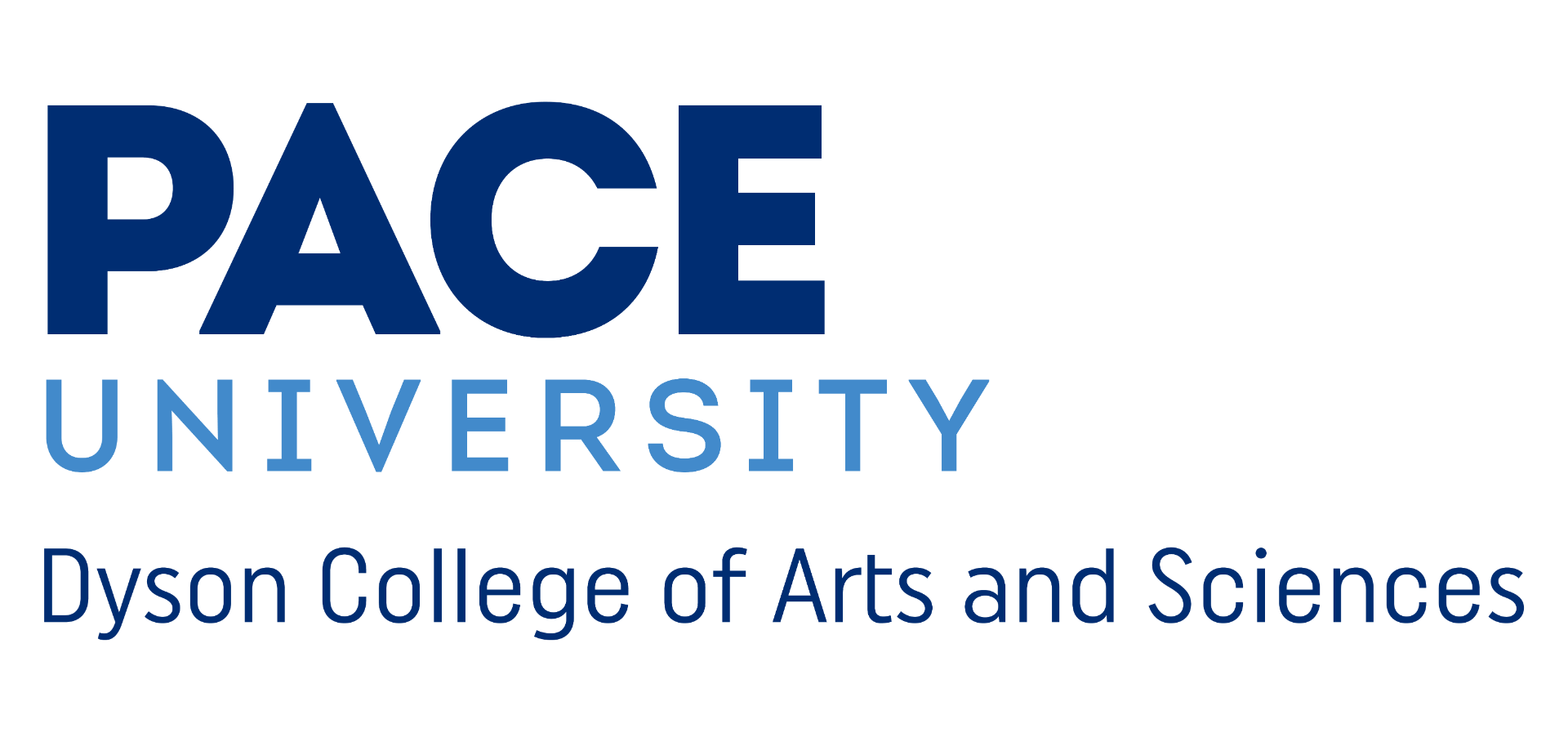Our Focus:
Professional Training
DCISE provides hands-on training to Pace students; connects students to community partners for internships and externships; and works with environmental stakeholders so that they may advance their environmental conservation and sustainability initiatives. DCISE also provides a place for our community to meet and discuss the environmental issues that are affecting our region and the world.
Student Programs
![IMG_2517[2] copy](https://dcisear.pace.edu/files/2020/06/IMG_25172-copy.jpg)
Environmental Policy Clinic
This unconventional course, taught by DCISE director of programming and clinical associate professor Michelle D. Land, JD, trains undergraduate students to research, design and advocate for legislative and regulatory policies while earning course credit. A highlight of the Clinic’s 2019-2020 agenda included working with New York State lawmakers to successfully initiate new legislation to reduce pollution from road salt.
Also, thanks in large part to Pace’s Environmental Policy graduate students Andrew Welch ‘18, Nicole Virgona ’18 and Alexxis Granger ’19, the Village of Pleasantville was awarded the Climate Smart Community Certification in Septebember 2019. These Pace students originally researched the CSC program, its steps to certification, and other municipalities that had participated as part of a team class project. The students pitched the idea of Pleasantville adopting the pledge to the Village’s Board of Trustees and proposed a partnership between the University and Village. With the resolution passed to adopt the CSC Pledge, these students worked closely with Eric Morrissey, village administrator, municipal staff, and community members to conduct a Greenhouse Gas Inventory, and set priority actions for a Climate Action Plan, all of which eventually led to the full CSC Certification. New York’s Climate Smart Community (CSC) program helps local governments reduce greenhouse gas emissions and adapt to a changing climate.
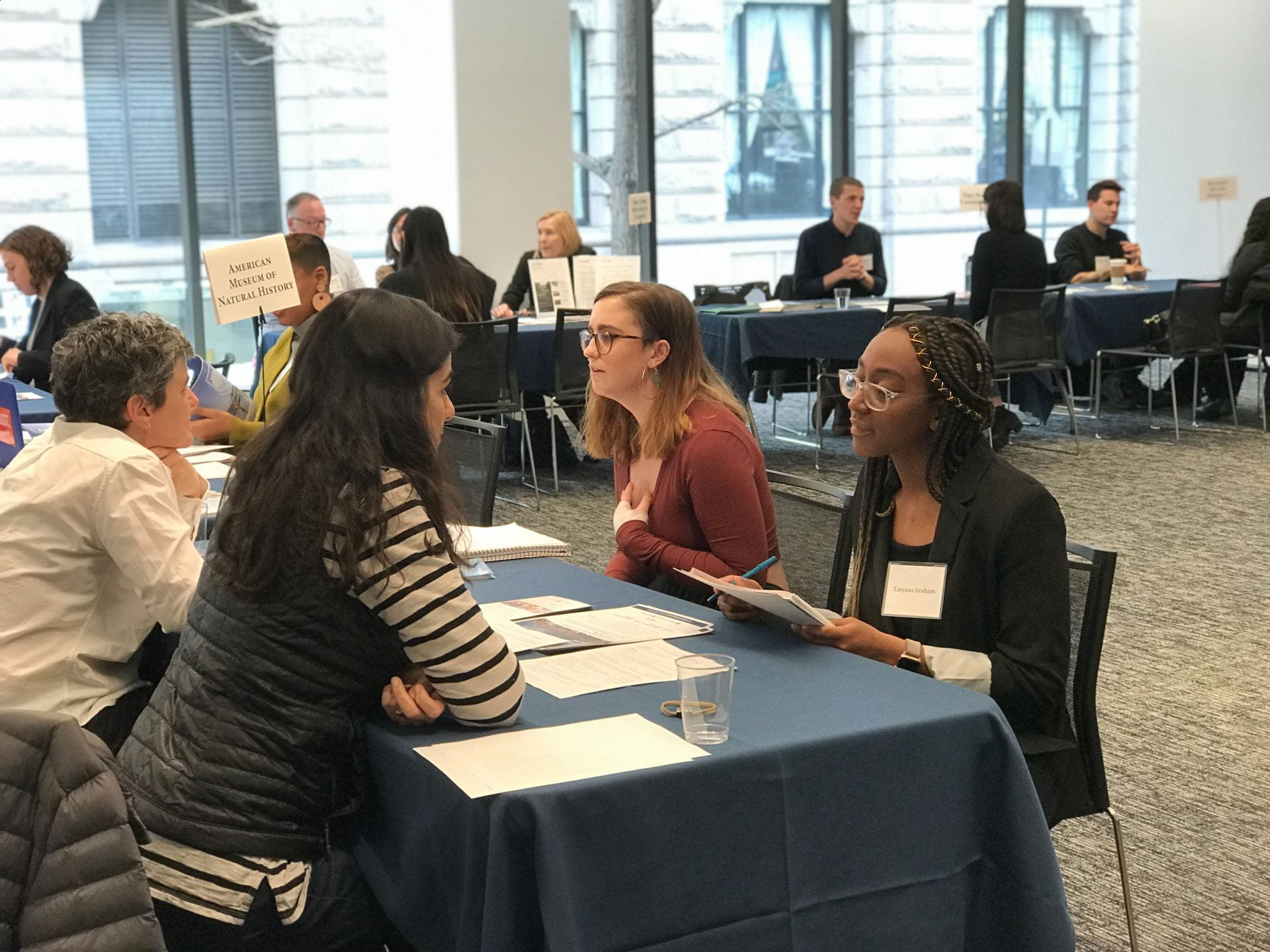
Internship Meetings
Students on both the Pleasantville and New York City campuses met with representatives from environmental organizations such as the Billion Oyster Project, Stone Barns Center for Food and Agriculture, New York Botanical Garden, the Wolf Conservation Center, New York City Parks Department, Teatown Lake Reservation, and more.
These organizations, offering open internship positions, met with Pace students to learn more about their interests and goals, to offer career mentorship, and to recruit for their open positions.
October 2019 | Pleasantville campus
November 2019 | New York City campus
Community Programs

ELLA Meeting
DCISE hosted the summer 2019 meeting of the Environmental Leaders Learning Alliance (ELLA). The meeting focused on the recently released Intergovernmental Panel on Climate Change’s report and how local municipalities can begin to address this pressing issue. The meeting was attended by representatives from 15 municipalities. Chandu Visweswariah, PhD, chief executive officer of Utopus Insights, Inc. provided a summary of the IPCC report and was followed by John Rhodes, chairperson of the Mount Kisco Conservation Advisory Council and NY State Association of Conservation Commissions board member, who spoke on the resources available to conservation commissions to address climate change. Dean Gallea, co-chair of the Tarrytown Environmental Advisory Council, wrapped up the meeting by sharing information on how Tarrytown is addressing climate change through changes in their zoning laws.
June 2019 | Pleasantville campus
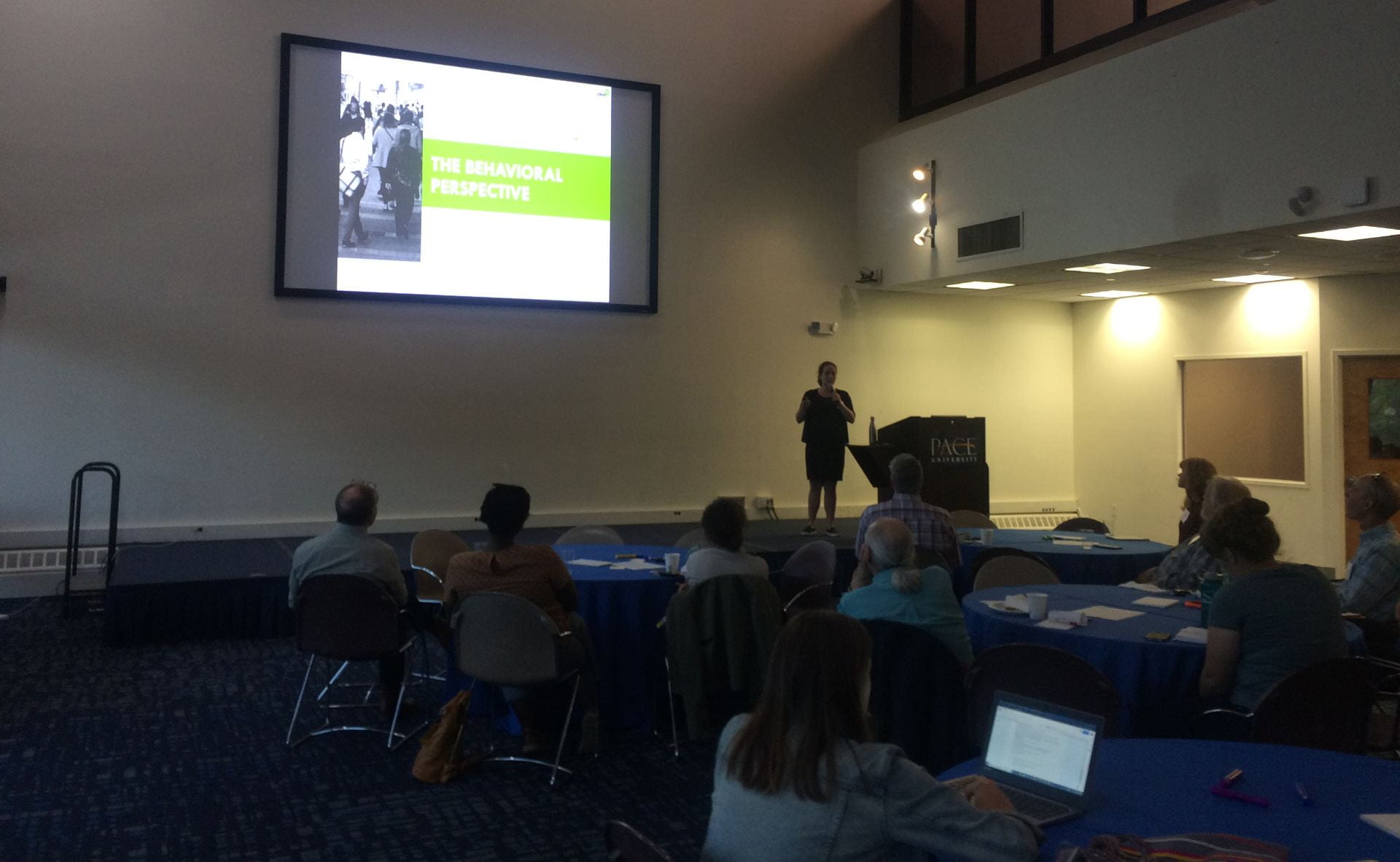
STEPS Workshop:
Why Facts Don’t Change Minds – The Psychology of Science Communication
Environmental managers need to communicate scientific information to the public but are often in need of tools for effective and meaningful messaging. This workshop, led by Anne Toomey, PhD, assistant professor, and Eleni Fischer, senior associate at ideas42, shared some of the latest research on science communication through the lens of behavioral psychology, and led activities designed to help participants work through communication problems at their organizations and companies.
September 2019 | Pleasantville campus

STEPS Workshop:
This Is How We Move It! The Importance of Considering Evolution in Restoration Practices
Erika Crispo, PhD, evolutionary ecologist at Pace University, discussed how the field of evolutionary biology can inform conservation management decisions. Conservation managers often seek to restore wild animal and plant populations by moving individuals from one place to another, and evolutionary biology can inform these practices by helping managers understand the role that genetic variation plays in ensuring the long-term sustainability of threatened populations.
November 2019 | New York City campus
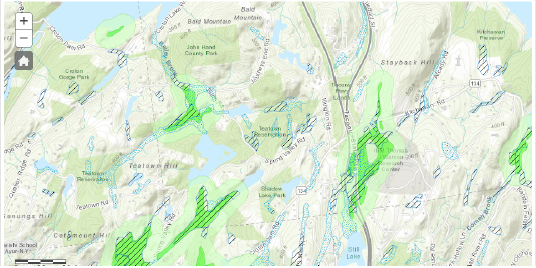
ELLA Event:
Hudson Valley Natural Resource Mapper Training
DCISE sponsored this free interactive training, led by the Environmental Leaders Learning Alliance (ELLA), about the Hudson Valley Natural Resource Mapper. The mapper is an online tool with over 30 geographic data sets identifying important habitats and water resources in the Hudson River Estuary watershed as well as scenic and recreation areas. The training introduced participants to the mapper layout, functions, and data layers, and provided examples of applications for local conservation, land use, and watershed planning.
November 2019 | Teatown Lake Reservation
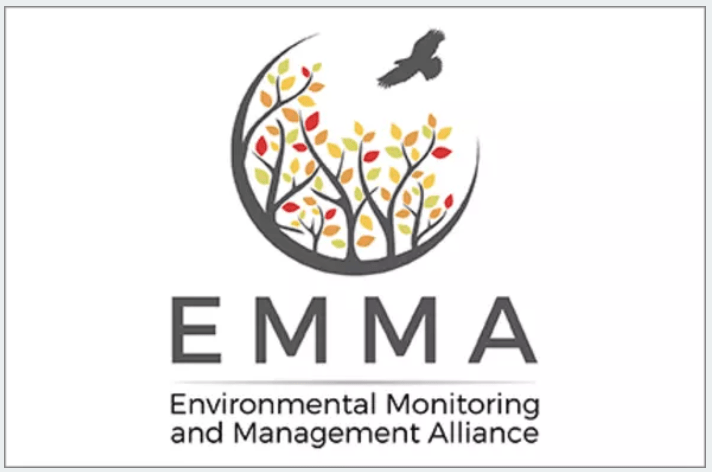
Environmental Monitoring and Management Alliance (EMMA)
This year, Pace continued its membership in the Environmental Monitoring and Management Alliance (EMMA). EMMA is composed of academic institutions, nonprofits, and state agencies located throughout the Hudson Valley. The mission of this alliance is to create a regionally coordinated ecological monitoring network that informs sustainable management practices and natural resource conservation. Pace is tasked with contributing data on local forests, mammal communities, and climate, providing several opportunities for student involvement through both research experiences and internships.
